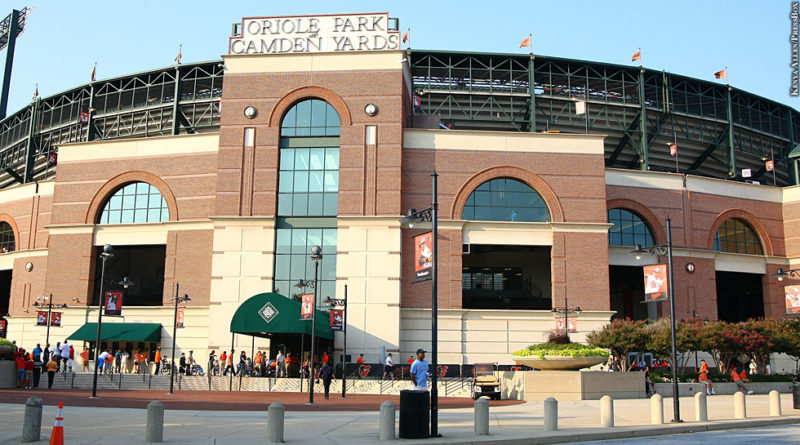There is a bit of a bitter irony that in the early days of the David Rubenstein era of Orioles baseball, the club’s last two leaders since the 1983 season — Larry Lucchino and Peter Angelos — have both been lost to us.
Of course, Angelos was 94 and had been in failing health for several years. The news of his passing was not the surprise that Larry Lucchino’s death was at the age of 78.
Upon hearing the news about Lucchino, I couldn’t help but think of the bite this news took out of baseball. As commissioner Rob Manfred said in his statement, “Larry Lucchino was one of the most accomplished executives that our industry has ever had. He was deeply driven, he understood baseball’s place in our communities, and he had a keen eye for executive talent.”
Lucchino was a Pittsburgher through and through. He graduated from Princeton, where he was a teammate of Bill Bradley’s on the basketball team. He started out as a lawyer in the offices of Edward Bennett Williams in Washington, D.C. It’s interesting to think how his calling was due to the good fortune of being at EBW’s side when he purchased the Orioles from the late Jerold Hoffberger.
Lucchino would gradually take on more and more responsibility running the ball club as Williams slowed down battling the cancer that would ultimately take his life in 1988. At some point in their relationship, Williams allowed Lucchino to own a piece of the Orioles and be the club’s control person. That put Lucchino in the unique position of possessing leverage in helping to handpick the next Orioles majority owner.
Unfortunately, Lucchino chose poorly with Eli Jacobs, who owned the club from 1989 until his bankruptcy in 1993 that ultimately took the process of picking the next Orioles owner out of anyone’s hands. Enter Peter Angelos, who was the highest bidder. He bought the Orioles for what was then the highest price an American sports franchise had ever sold for ($173 million).
Lucchino’s years as team president saw him as the point person in conveying the Orioles’ vision for what would become Camden Yards. That vision was Lucchino’s notion of how a modern ballpark should function with the amenities available at the time, paired with a throwback design. The ballpark that forever changed baseball was the brainchild of Lucchino with a huge assist to Janet-Marie Smith in conveying Lucchino’s ideas to the architectural design.
They say that imitation is the sincerest form of flattery. Lucchino’s ideas were certainly imitated. It says a lot that many of the copies haven’t had the staying power that Camden Yards, now in its 32nd season, has had.
After Angelos became the primary owner of the team, Lucchino saw an opportunity to use the equity he had with commissioner Bud Selig to grab a stake in the San Diego Padres. This time, Lucchino chose more wisely in bringing John Moores to be the majority owner of the Padres.
While Lucchino was in San Diego, the baseball team got better and so did the marketing. As the club became much more established from an attendance standpoint, the Padres were able to leverage the community support for San Diego’s version of Camden Yards, known as Petco Park.
After finishing up Petco Park, opportunity came a decade after the passing of Tom Yawkey’s widow Jean. Lucchino who was gradually falling out of favor with Moores, was able to get the backing of Selig to allow Lucchino to put together the financing for the deal to own a significant stake in the Boston Red Sox.
That was 2002. By 2004, the Red Sox had broken the Curse of the Bambino.
Lucchino was team president of the Red Sox from 2002-2015. In that time, the Sox won three World Series. He still retained a stake in the Sox and purchased the Pawtucket Red Sox. After working diligently with Rhode Island state officials for over a couple years to come up with the financing for a new stadium in Rhode Island, Lucchino reluctantly announced in 2018 that the PawSox would relocate to play in a new stadium in Worcester, Mass., in 2021.
You could call it Lucchino’s last act — he brought back Janet-Marie Smith and Charles Steinberg to help him create Polar Park and as president he named the team the WooSox.
I started this by saying that the news of Lucchino’s death took a bite out of baseball.
He simply was one of the brightest minds to ever play a meaningful role in baseball. He’ll be sorely missed by all the people he knew in baseball.
The landscape of Larry Lucchino’s baseball life was a tapestry of love for the Grand Old Game.
Photo Credit: Kenya Allen/PressBox

